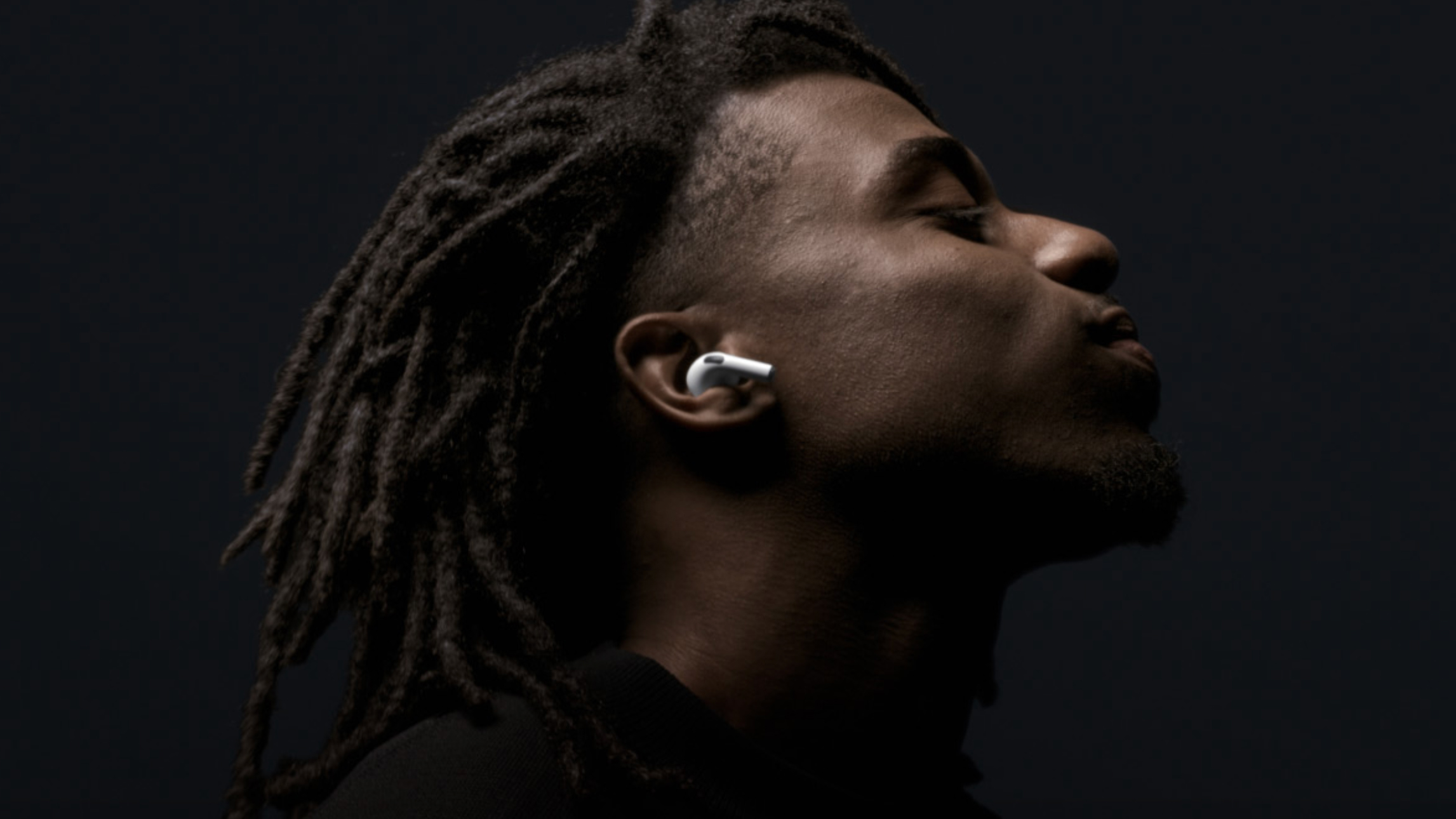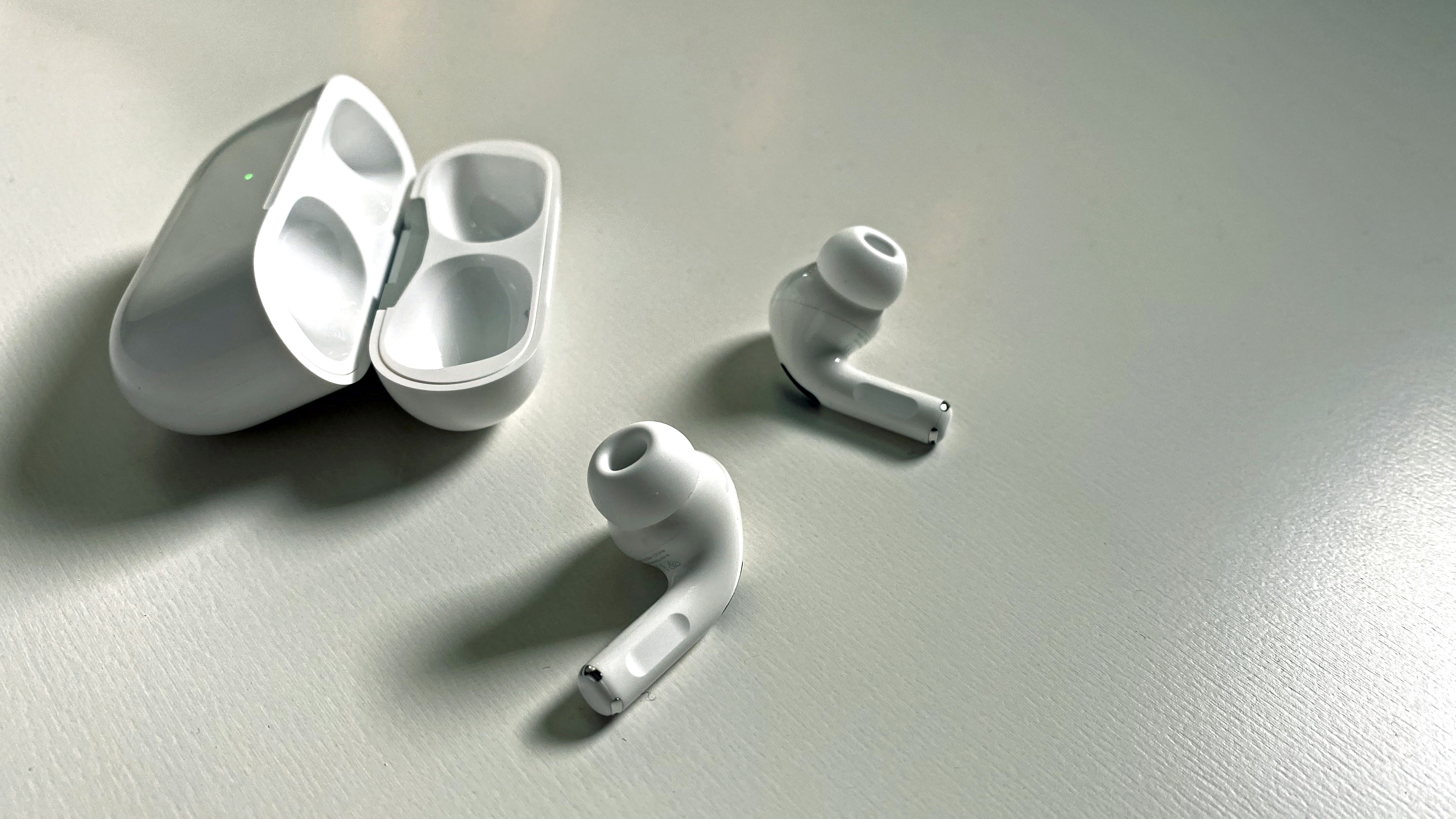What does Apple Music's spatial audio success mean for the AirPods Pro 2?
Will the AirPods Pro 2 support lossless audio?

Sign up for breaking news, reviews, opinion, top tech deals, and more.
You are now subscribed
Your newsletter sign-up was successful
Apple has recently spoken up about the success of spatial audio while downplaying the benefits of lossless playback on its Apple Music platform - and its comments could give us a hint about what we can expect from the AirPods Pro 2.
Speaking to Billboard, executives responsible for Apple Music explained that record labels that remaster their music with spatial audio see a large uptick in the number of new listeners (via AppleInsider).
At the same time, they explained that, while lossless audio is a part of its Apple Music offering, it’s a fairly niche feature that most users won’t be taking advantage of.
As Apple’s vice president of Apple Music, Oliver Schusser, put it “[The] challenge is [lossless audio] doesn’t play on any headphone in the world over Bluetooth or any wireless connection,” which, according to him, is the most common way people consume music today.
While it's worth noting that spatial audio - or at least Apple Music's specific version of virtual surround sound - only works with a select few Apple headphones, it's true that there are no wireless headphones that can currently handle truly lossless audio files, due to Bluetooth's bandwidth limitations.
What about Lossless Audio?
Lossless and hi-res audio streaming is niche in the sense that you need a decent pair of headphones to take advantage of it, but it's definitely growing in popularity, and Apple Music is just one of many streaming services to offer high quality music.
Unlike highly compressed MP3 files, lossless audio closely replicates the sound created in the studio at the time of recording, revealing far more detail and clarity in your music - an absolute must-have if you consider yourself an audiophile.
Sign up for breaking news, reviews, opinion, top tech deals, and more.
No current model of Apple AirPods support lossless audio streaming as they use the AAC Bluetooth codec, rather than the Apple Lossless Audio Codec (ALAC) required for hi-res audio.
Spatial audio, on the other hand works on the AirPods 3, AirPods Max, and AirPods Pro - and the effect is much more immediately noticeable, placing elements of your music in a virtual sphere to make it feel as though sound is coming at you from every angle.
It's clear that spatial audio is a success according to Apple's expectations. When The Weekend re-released his 2016 album Starboy with spatial audio, the number of first-time listeners tuning in rose by 20%, according to figures released by the company.
First- time listeners for Taylor Swift's Lover and The Beatles' Here comes the Sun also rose by 50%.
So, we can be pretty sure that future AirPods - like the AirPods Pro 2 - will support spatial audio. Lossless audio support, however, is far less certain.
Analysis: what does this mean for the AirPods Pro 2?

Though Apple is yet to announce a follow-up to its premium true wireless earbuds, all the rumors we've heard are pointing to a 2022 release date for the AirPods Pro 2.
It's been suggested that the AirPods Pro 2 will support lossless audio via Apple's ALAC codec - however, the company’s comments on Apple Music suggest lossless audio isn't as much of a priority for Apple as we'd hoped.
By emphasizing the benefits of spatial audio, Apple could be trying to downplay the AirPods’ continued lack of support for lossless audio - while the line’s ability to deliver immersive sound is celebrated.
This isn’t the first time Apple has downplayed lossless audio. Back in June 2021, head of Apple Music Eddy Cue told Billboard that he can’t tell the difference between compressed and lossless audio - and that he believes most people can’t either.
Whether you agree with Cue's belief or not, it’s further evidence that Apple is trying to convince us that spatial audio - not lossless playback - is what really matters.
That said, the idea that lossless audio isn't important to consumers isn't a belief held by everyone at Apple, and we know that Apple is interested in overcoming the limitations of Bluetooth audio transmission. In an interview with What Hi-Fi?, Apple's VP of Acoustics, Gary Geaves said that “there’s a number of tricks we can play to maximise or get around some of the limits of Bluetooth,” but that “it’s fair to say that we would like more bandwidth”.
Apple might have even found a way to support lossless audio by opting for its own alternative to Bluetooth using optical transmission.
If the AirPods Pro 2 do launch in 2022, it may be too late for Apple to implement its Bluetooth alternative this time around. Adding support for Qualcomm's aptX Lossless codec would allow AirPods users to experience high quality streaming for the first time, and the technology is already there. Whether Apple would actually opt to use another company's technology within its next flagship earbuds, is another question entirely.
For now, it looks like Apple is firmly setting its sights on dominating the world of spatial audio streaming - and this could be bad news for any audiophiles who were hoping to try the world's most popular line of true wireless earbuds without sacrificing sound quality.
- Check out: the best AirPods deals in February 2022

Hamish is a Senior Staff Writer for TechRadar and you’ll see his name appearing on articles across nearly every topic on the site from smart home deals to speaker reviews to graphics card news and everything in between. He uses his broad range of knowledge to help explain the latest gadgets and if they’re a must-buy or a fad fueled by hype. Though his specialty is writing about everything going on in the world of virtual reality and augmented reality.